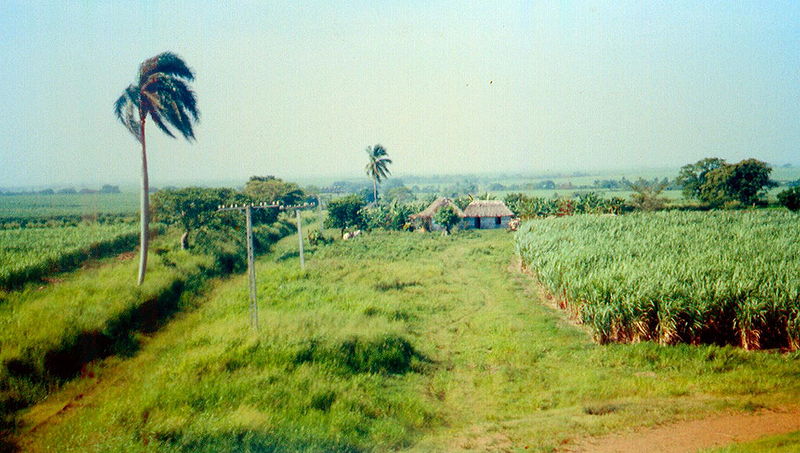
Wikipedia: a sugar plantation in Cuba
Though I try not to be too gloomy, I, like many others, am afraid that there’s a significant chance that there may be hard times in our not-too-distant future. In fact, I’m afraid we may be in for a double whammy. Whammy No. 1 would be a long period with a weak economy. Whammy No. 2 would be the end of cheap oil.
As for the economy, Steven Pearlstein, a columnist at the Washington Post, summarizes it pretty well today in Enough with the economic recovery: It’s time to pay up. Pearlstein says: “The controlling reality is that the global economic system is rebalancing itself after years in which the United States was not only allowed but encouraged to live beyond its means, consuming more than it produced and investing more than it saved. Now the bill for that is finally coming due — all the clever and seemingly painless ways for postponing that day of reckoning have pretty much been played out. The only question now is what form that payment is going to take. Will it be an extended period of subpar growth and high unemployment, inflation that erodes the purchasing power of our income and the value of our assets, a deflationary spiral that grinds down wages and salaries and increases our debt burden — or, as I suspect, some combination of all three?”
As for the end of cheap oil, Jörg Friedrichs, a social scientist at Oxford, has an article in the August issue of Energy Policy about possible responses to the end of cheap oil. Miller-McClune Online also has an interview with Friedrichs.
Friedrichs sees three likely responses, two of them quite negative, and one of them positive:
1. Attempts by nations to take oil by military predation, as Japan did from 1918 to 1945.
2. Attempts by elites to preserve their rich lifestyles at the expense of the rest of the populaton, as North Korea did during the 1990s.
3. Socioeconomic adaptation, which is what happened in Cuba after the fall of the Soviet Union, when Cuba’s fuel imports dropped by an estimated 71 percent. Cubans adapted by turning their apartment terraces and urban vacant lots into gardens, and by helping each other out. Because Cuba has never been a rich country, traditional knowledge (of such things as farming) was still common. Family and community networks were still strong.
As much as I loved my 17 years in San Francisco, I certainly would not want to be in any city during hard times. I’d rather be in farmland, places where people still have barns and pastures, places where people remember the skills that supported their parents and grandparents.
3 Comments
I am concerned by the same worries. And basically that’s how I’m restructuring my life. Debt is paid off entirely but still spending money into building personal infrastructure to replace failing government infrastructure. Rain Barrels, soil improvement, plant cultivars that produce seed as well as fruit and vegetables, building relationships with neighbors and just generally living cheap.
Yes indeed. I completely agree with your strategy. I think that lots of people ignore the importance of sowing the seeds for cooperating with neighbors. Neighbors are natural allies during hard times, trading and bartering their skills and produce.
Please forgive this intrusion. I’m trying to make contact with David Dalton to request permission to reprint his article http://www.eham.net/articles/8828 on my blog. Please email me and delete this post.
Thanks
Post a Comment